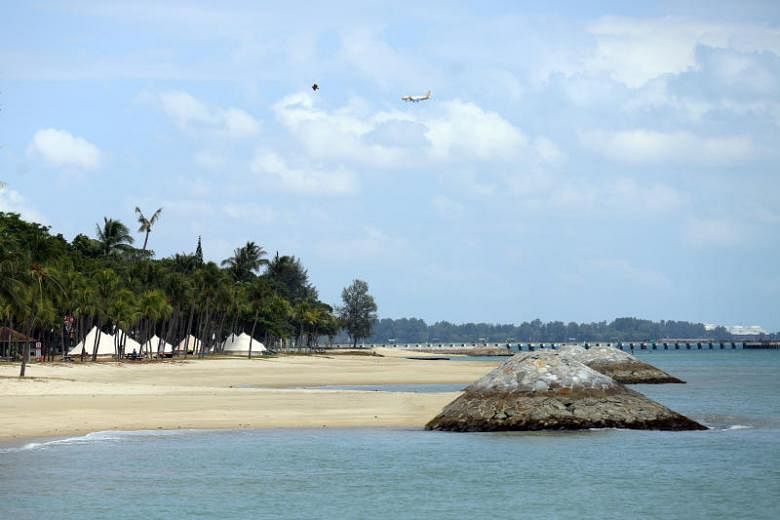SINGAPORE (BLOOMBERG) - Singapore is weighing options including the issuance of government bonds to fund the $100 billion it could take to fight rising sea levels over the next century.
In the short term, funding for projects such as a $400 million upgrade to the country's drainage systems to boost flood resilience will come from ministry-level expenditures, Minister for the Environment and Water Resources Masagos Zulkifli said in an interview on Wednesday (Aug 21).
Longer-term spending, he said, could require the Government to tap its national reserves and issue state bonds.
"For those that have to be spent that will benefit future generations, we're talking about borrowing so that whatever we spend for the future will also be paid for by the future generations," Mr Masagos told Bloomberg TV's Haslinda Amin. "$100 billion is actually a lot of money even if spent over 100 years."
The climate change push was a key prong of Prime Minister Lee Hsien Loong's National Day Rally address on Sunday where he urged Singaporeans that "everything else must bend at the knee to safeguard" the country.
He said all new developments will have to be built at least 4m above sea level, while the Government will also consider building polders to protect existing low-lying areas and reclaiming land for offshore islands.
In growing the country's land mass, Singapore has traditionally relied on importing sand from other countries, a method that carries environmental consequences. Neighbouring Malaysia said last month it had banned all sea sand exports last year, while Indonesia and Cambodia have halted sand exports to limit damage to their environment.
Singapore's total land area has increased from 581.5 sq km in 1965 - the year of its independence - to 724.2 sq km last year, according to government data.
Mr Masagos said there are other solutions if Singapore doesn't get sand. Beyond imports, the country is considering options including incinerating bottom ash from burning its waste to produce what it calls "new sand". It is also in the early stages of extracting metals like copper and gold from an urban mine in the south of the island.
"We want to have solutions which are sustainable," Mr Masagos said. "We can't take sand from somewhere else and destroy others or their environment. We don't want that to happen."
Singapore must also look to produce its own water, whether through technology or energy-efficient methods, by the time a contentious water purchase pact with Malaysia expires in 2061.
Singapore doesn't see climate change as a "tree-hugging" issue. "It is based on science and research for which we have spent a lot of money on, getting supercomputers, scientists, and putting all the data that we have to enable us to make proper policy decisions," Mr Masagos said.

